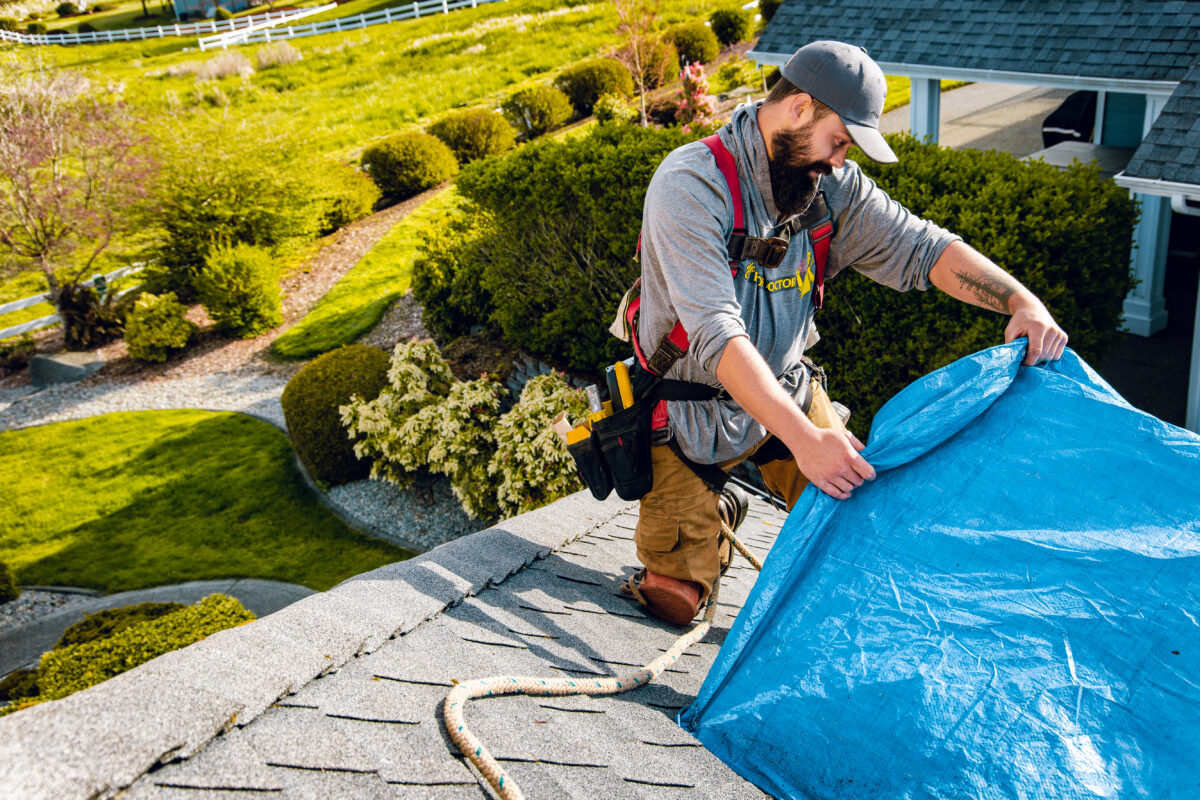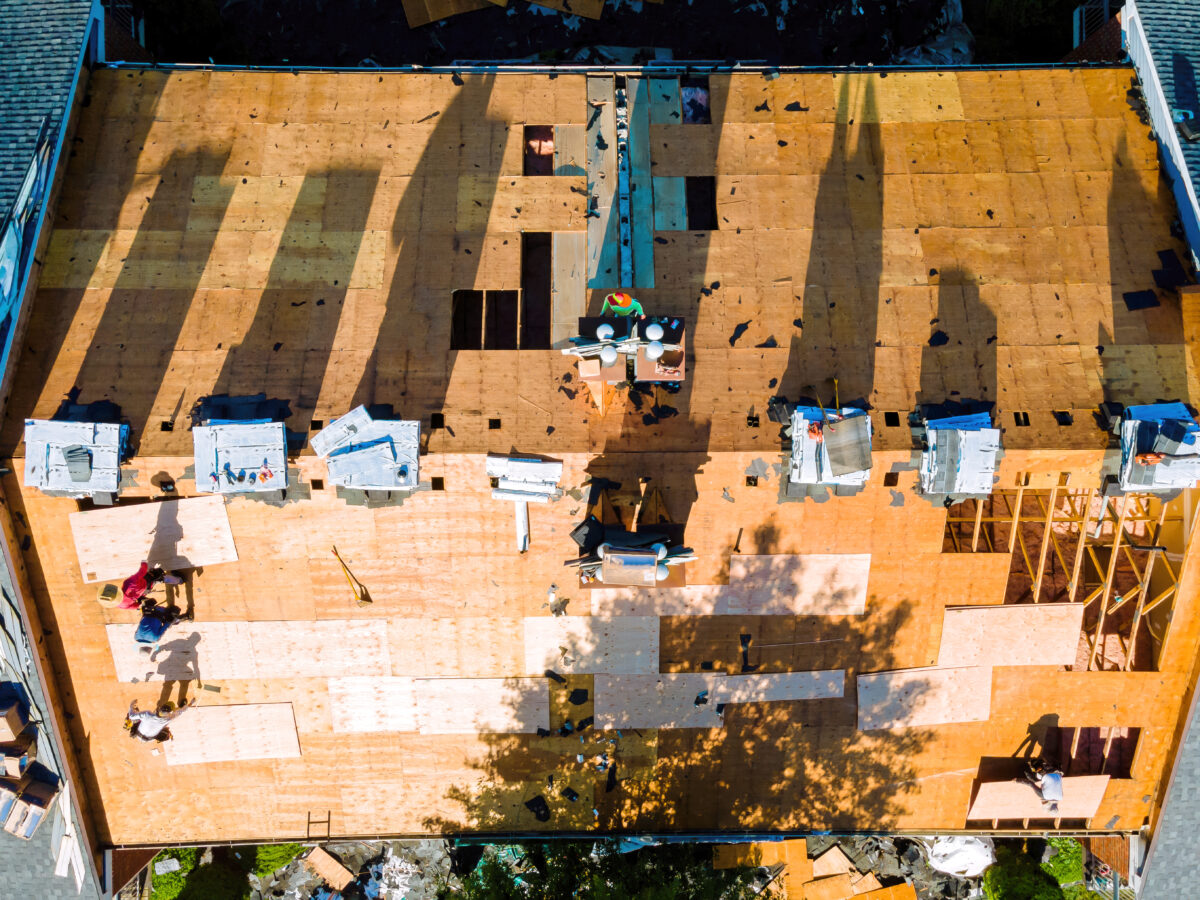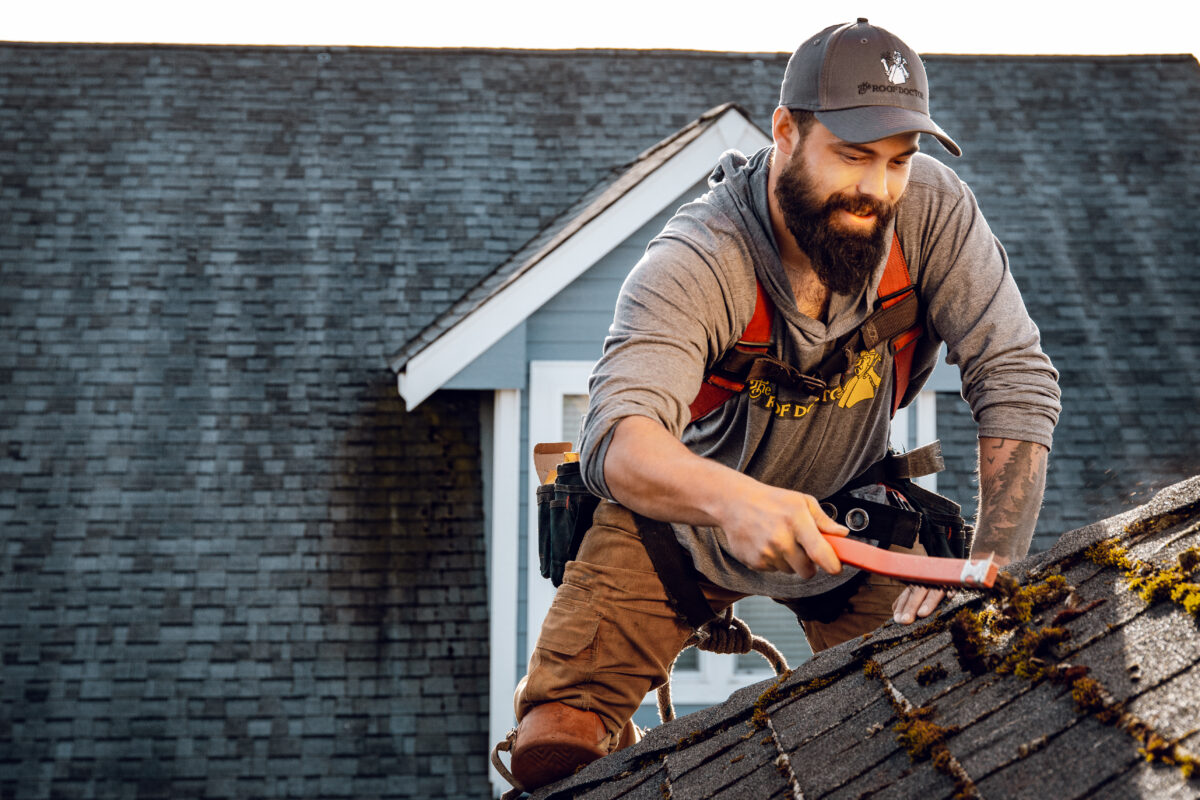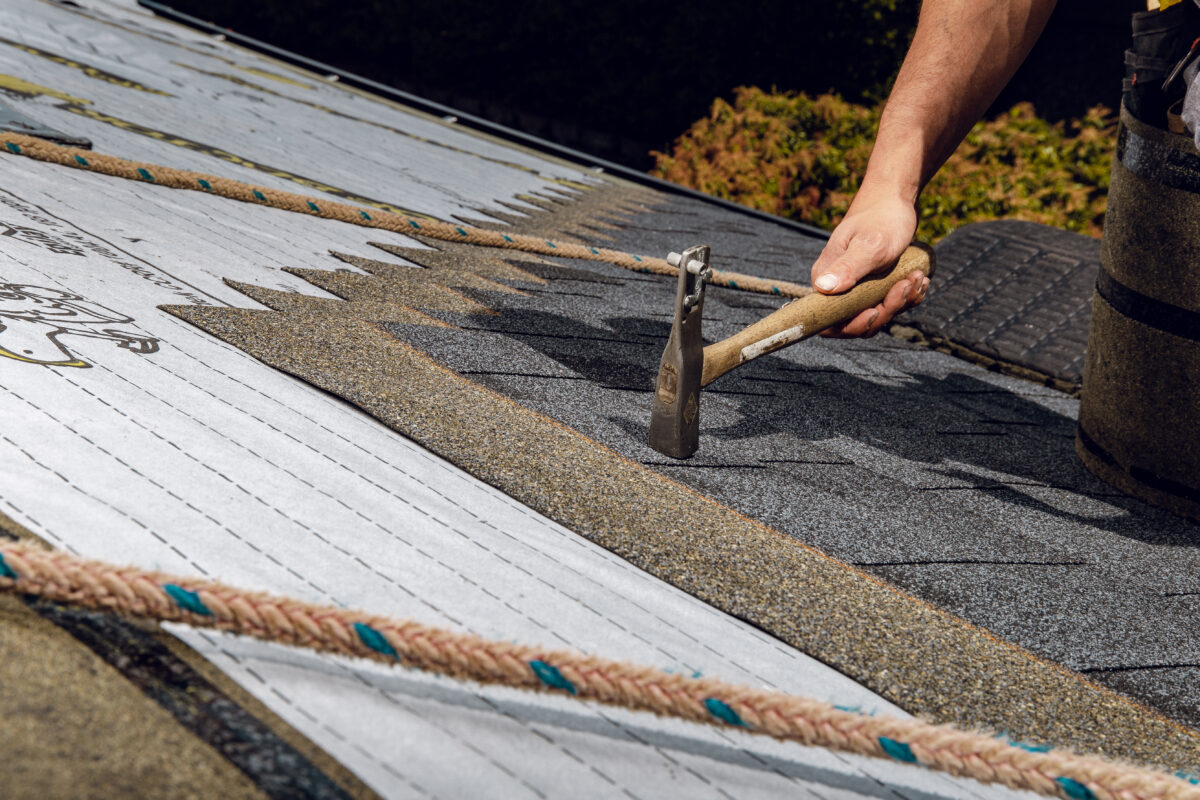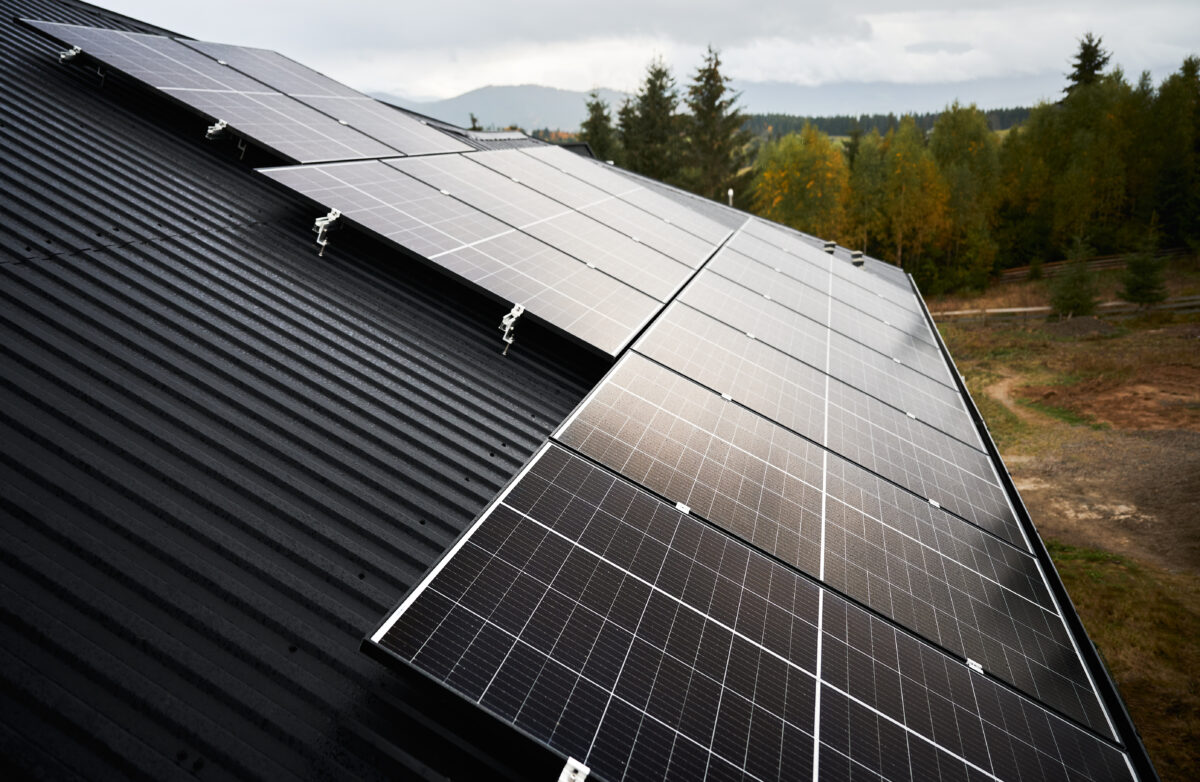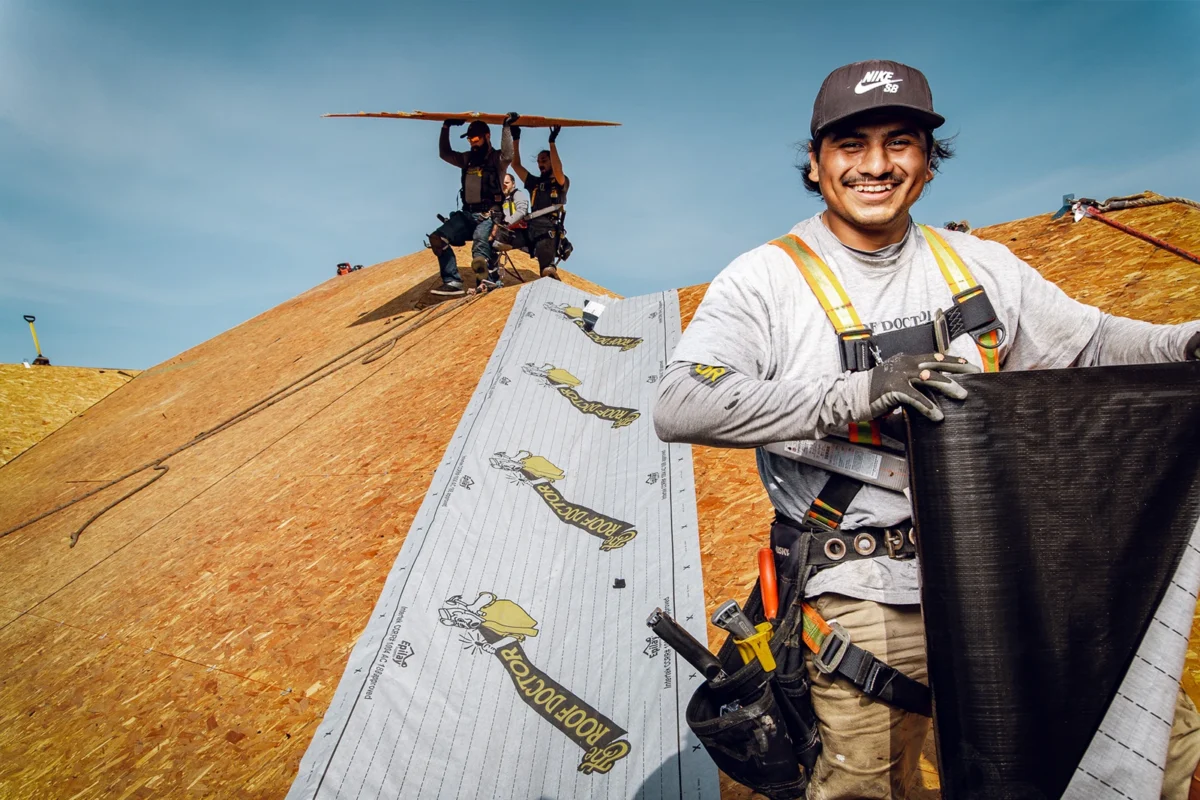Common Roofing Issues in Pierce County and What to Do About Them
Though a beautiful place to live, Pierce County’s weather is not gentle with roofs. With a combination of heavy rainfall, occasional high winds, and fluctuating temperatures, Pierce County’s unique climate can pose a challenge for homeowners and business owners alike when it comes to roof maintenance. There are just so many things that can go wrong—which is why in this article, we’ll walk you through everything you need to know about Pierce County roofing issues and how to handle them.
Leaks
Roof leaks are among the most common roofing problems in Pierce County. This doesn’t really come as a surprise, if you take into account the deluge that douses early winter months here in Washington State, but it’s still a problem.
Causes:
- Damaged or missing shingles – High winds and heavy rain can cause shingles to loosen or break.
- Improperly installed flashing – Poorly sealed flashing around chimneys, skylights, and roof valleys can lead to water penetration.
- Clogged gutters – Water can back up under shingles when gutters are filled with debris.
Solutions:
Regular roof inspections can help detect minor issues before they become big problems, and replacing damaged shingles promptly prevents further water damage. Ensuring proper flashing installation around vulnerable areas and keeping gutters clear allows water to drain efficiently, reducing the risk of leaks.
Shingle Problems and Loss of Granules
Asphalt shingles are a popular aesthetic choice in Pierce County–and for good reason; the style is excellent. However, they are prone to issues such as curling, cracking, and granule loss.
Causes:
- Curling and cracking – Caused by aging, UV exposure, and poor attic ventilation, these issues compromise the integrity of the shingles and make them more prone to leaks.
- Granule loss – This occurs when the protective granules on shingles wear away due to weather exposure, foot traffic, or aging. Granule loss reduces the roof’s ability to deflect UV rays and retain moisture protection, making the shingles brittle over time.
Solutions:
Proper attic ventilation is the answer to excessive heat buildup, which causes shingle deterioration. To extend the life of your roof, simply start by replacing worn shingles before leaks develop and opting for high-quality materials.
Moss and Algae Growth
While the excessive moisture of the Pacific Northwest makes for a beautiful, year-round green climate, its growth encouraging properties have their setbacks. One of those setbacks is persistent moss and algae.
Causes:
- Excessive moisture – Prolonged dampness encourages moss and algae formation.
- Limited sunlight exposure – Shaded areas promote algae and moss development.
Solutions:
Installing copper or zinc strips inhibits moss growth. Trimming overhanging branches allows more sunlight exposure, and using a mild bleach solution or specialized roof cleaner safely removes existing growth.
Ice Dams
Though more infrequent than some of the other items on the list, it’s still important to know how to deal with the issue of ice dams in case you ever do find yourself hindered by them.
Causes:
- Poor roof insulation – Inadequate insulation allows heat to escape, causing uneven snow melting.
- Clogged roof vents – Prevents proper airflow, leading to freezing runoff.
Solutions:
Improving attic insulation and ventilation helps regulate roof temperature. Removing excess snow before it refreezes and installing heating cables in problem areas can also prevent ice dam formation.
Flashing Failures and Roof Valleys
Flashing is essential for protecting roof valleys and penetration points like chimneys and vents, so when it gets damaged, it’s a big deal.
Causes:
- Deterioration – Aging or rusted flashing materials fail over time.
- Improper installation – Poorly sealed flashing leaves gaps for water infiltration.
Solutions:
Routine roof inspections can identify early signs of damage. Using high-quality, rust-resistant flashing materials and ensuring proper sealing helps prevent leaks.
Poor Ventilation
Ventilation is a big part of keeping your roof sound and whole, as odd as it might sound. When your ventilation is poor, it can lead to all sorts of other problems, some of which are already listed above.
Causes:
- Blocked roof vents – Prevents proper airflow, trapping moisture and heat. A blockage can be anything from debris to heavy snow.
- Inadequate attic ventilation – Leads to excessive heat buildup and premature roof wear.
Solutions:
Installing roof vents and ensuring soffit vents remain unobstructed improves air circulation. Ridge vents help regulate temperature and moisture levels within the attic.
Gutter Problems and Drainage Issues
The evergreen trees are the pride of Washington state, but their pine needles and cones end up absolutely everywhere, making clogged gutters a frequent problem for any Pierce County homeowner.
Causes:
- Blockages – Leaves and debris cause overflow, leading to fascia and soffit damage.
- Sagging or leaking gutters – Improperly installed gutters or heavy water load can cause sagging and detachment.
Solutions:
Regular cleaning, installing gutter guards, and ensuring proper slope help maintain efficient drainage and prevent water damage.
Tree Damage
Along the same lines of clogged gutters and drainage issues, Pierce County’s trees can cause worse damage when overhanging branches scrape the upper layer of the roof or even break and fall.
Causes:
- Heavy winds and thick snow – Can break branches off of trees and send them through your roof.
- Overhanging branches – Scrape and puncture roofing materials during storms.
- Accumulated debris – Leaves retain moisture, contributing to rot.
Solutions:
Trimming tree branches away from the roof, removing accumulated leaves, and scheduling annual tree inspections help prevent damage.
Standing Water and Ponding
Flat roofs are common in commercial roof installations, but standing water can pose a threat.
Causes:
- Poor drainage – Insufficient slope prevents water from flowing off the roof.
- Clogged scuppers or drains – Causes water to accumulate.
Solutions:
Improving drainage with additional scuppers or drains, using tapered insulation for proper slope, and inspecting roofs regularly help mitigate ponding issues.
When to Call a Professional
While some minor roofing issues can be addressed with regular maintenance, certain problems require professional expertise. You should call a roofing professional if:
- You notice persistent leaks that do not resolve after DIY fixes.
- Your roof has widespread shingle damage or missing shingles.
- You see significant granule loss on shingles, indicating severe aging.
- There are visible sagging areas, which could indicate structural issues.
- Your attic has excessive moisture, mold, or ventilation problems.
- Ice dams repeatedly form despite preventive efforts.
- Your gutters or flashing are extensively damaged and require specialized repairs.
Professional roofers have the tools, materials, and experience to diagnose and fix roofing problems effectively, ensuring long-lasting protection for your home.
Why Trust the Roof Doctor?
Whether you’re dealing with minor shingle problems, a leaking roof, or need a full roof installation, The Roof Doctor is here to help. Our highly trained crews provide expert services, from roof inspections and repairs to complete roof replacements.



